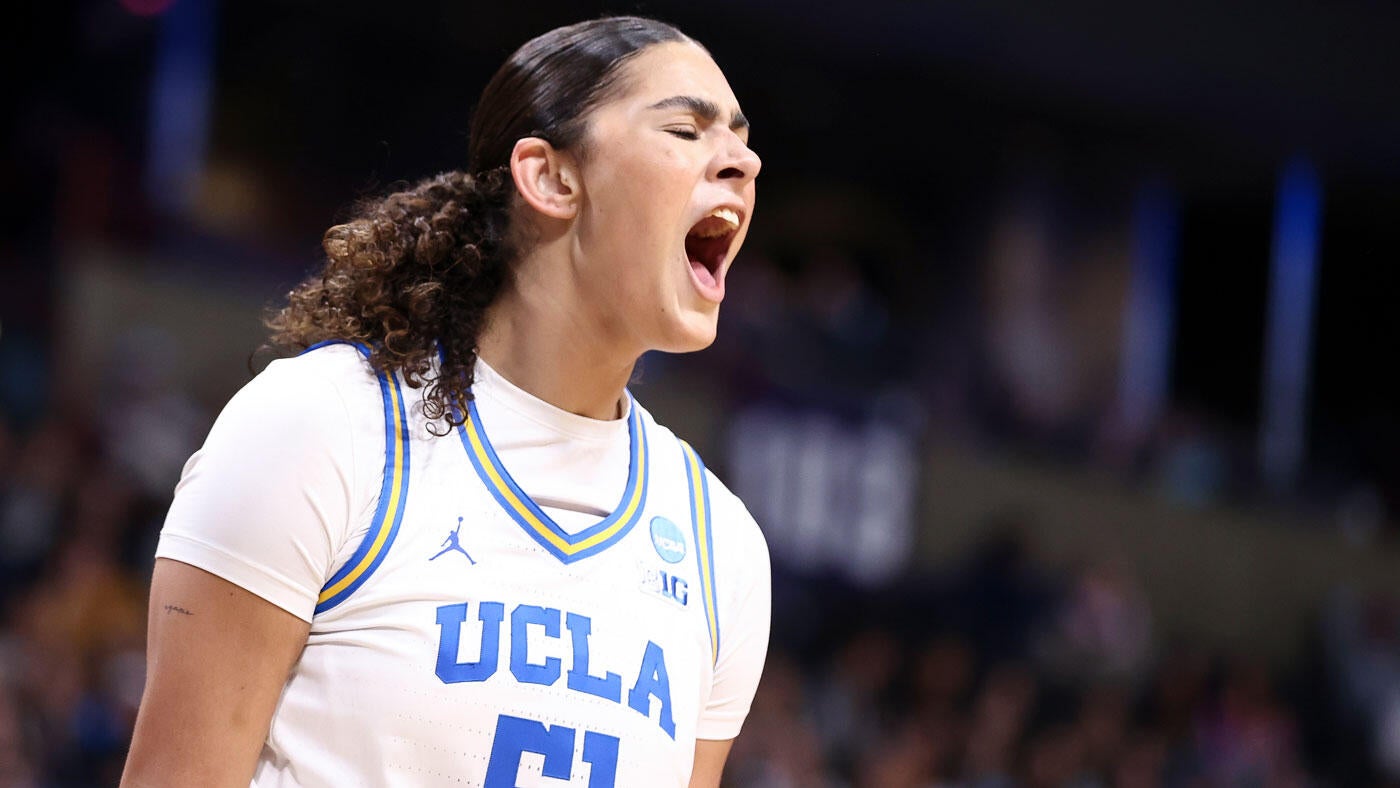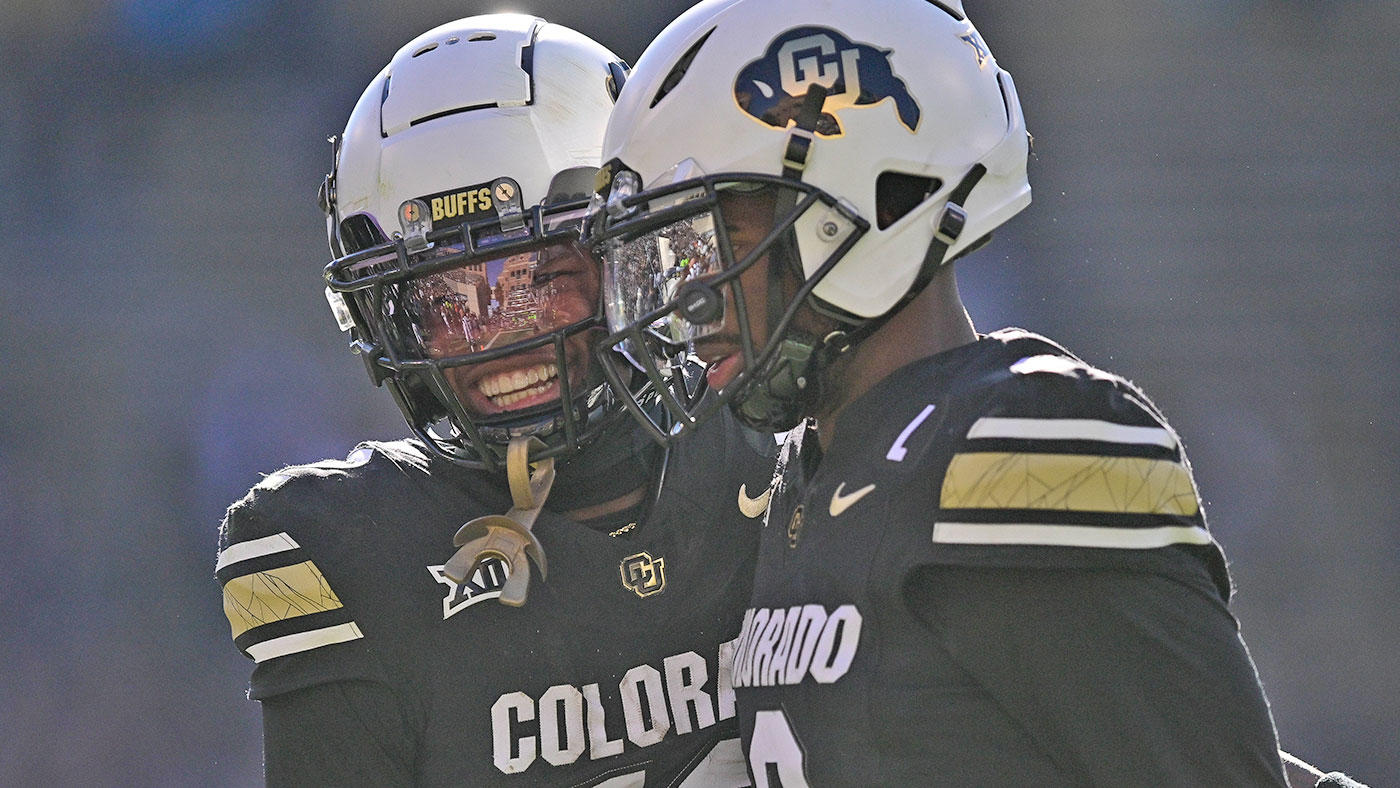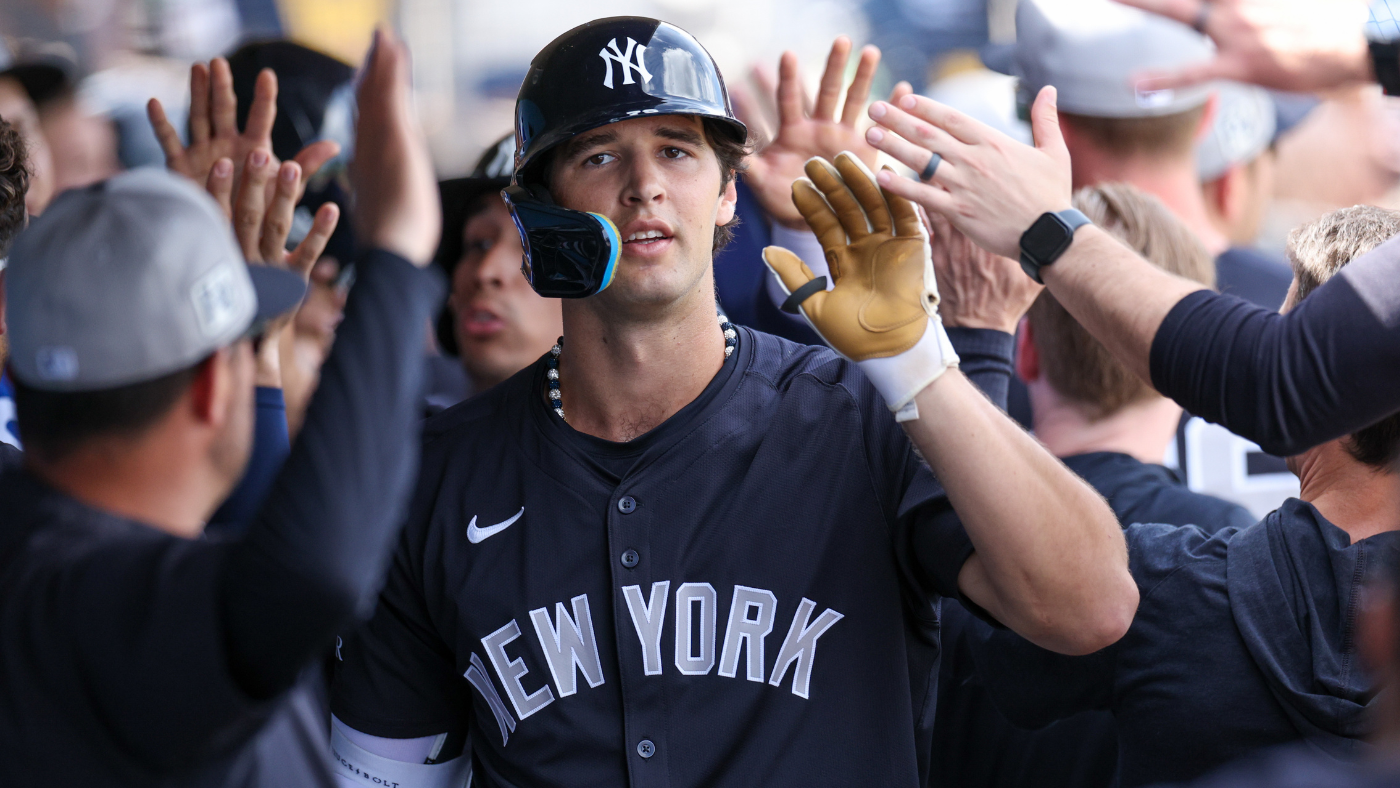The first day UCLA returned from the offseason, Kiki Rice could see Lauren Betts was different.
She hadn’t overhauled her game or developed a new shot. The All-American center hadn’t needed to. What Betts had been missing was confidence, the ability to see in herself what everyone else did.
“I could tell what a different player she was and the different confidence she had about her,” Rice said Thursday during a media day ahead of the women's Final Four in Tampa, Florida. "We all knew the entire time the incredible player she was. But I think a lot of it was about her realizing that.”
Betts is the engine that has powered overall No. 1 seed UCLA’s first-ever trip to the Final Four in the NCAA era. She’s averaging close to a double-double with 20 points and 9.6 rebounds a game, and is ranked fifth in the nation with three blocks a game.
But Betts’ power is not limited to what she does on the basketball court. She has been open about her struggles with mental health, hoping she can be an example for other girls and young women who are suffering in silence as she once did.
"I had mentors and I'm really thankful, but I know there's a lot of young girls who don't,” Betts said Thursday. “For me to be an outlet and to kind of validate their feelings and to know there's someone out there who is dealing with the same thing that I am is, I think, is just really important.”
It has never been easy to be a kid who is perceived as "different." Betts, the daughter of a former professional basketball player, was already 5-foot-6 in third grade, and remembers being mocked and gawked at because of her height. She is 6-foot-7 now.
But our online culture, social media in particular, has made the cruelties and comments exponentially worse. It wasn’t just the kids in her class or the people at the mall who made Betts feel small, it was cowardly people who tore her down from the safety of their keyboards.
"If I could (have), I would literally shrink," Betts said in an ESPN story last month that gave an unflinching look at her struggles with mental health. "Or I would become invisible so that no one could see me. I just was so tired."
Those close to Betts could see the toll it was taking — she left Stanford after her freshman year because of what she described as a callous atmosphere — but no one knew how bad it was until January of last year.
"I got into a state, the lowest state I've ever felt in my entire life," Betts told ESPN. "To a point where I was like, 'I can't be here. Like, I can't be here. I can't do life anymore.'"
She had already taken a leave from ...







